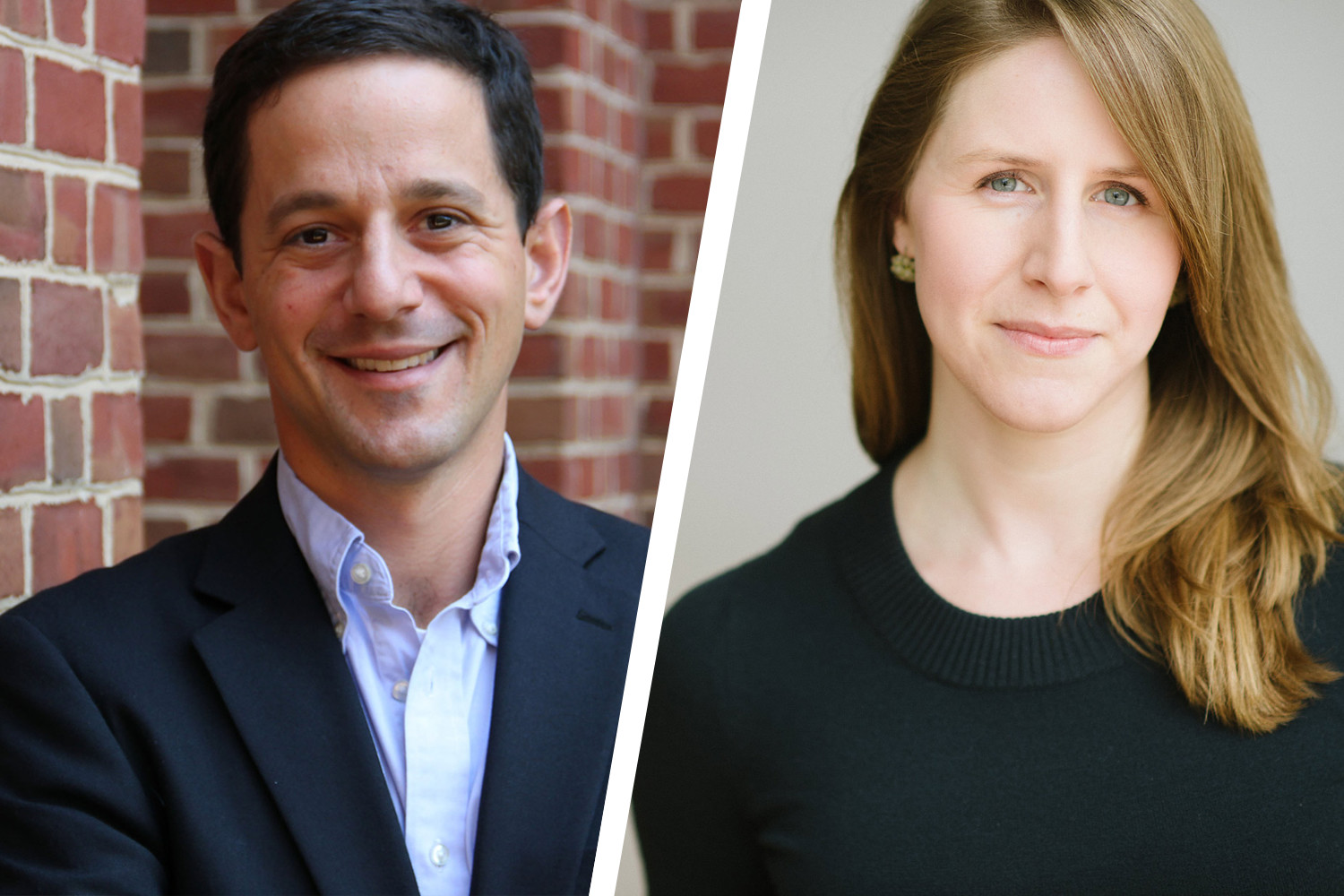The National Institute of Justice says two-thirds of released inmates will be rearrested within three years. A new University of Virginia program is aiming to change that.
Two UVA professors, in partnership with Edovo, a Chicago-based education technology firm, are launching a program that will develop, implement and evaluate a tablet-based re-entry module to strengthen inmates’ transitions back into society after they complete their sentences.
Ben Castleman, an assistant professor of education and public policy in the Curry School of Education, and Jennifer Doleac, an assistant professor of public policy and economics in the Frank Batten School of Leadership and Public Policy, are working on the project.
“This high recidivism rate signals our collective failure to help formerly incarcerated individuals build stable lives after prison,” Doleac said. “By leveraging interactive technologies and behavioral insights, we can provide prisoners with more personalized information and supports during this often-challenging transition, and reduce the probability of recidivism.”
Before release, the module will help inmates create a personalized transition plan. Post-release, it will provide ongoing information to inmates to keep them on track.
Castleman and Doleac will pilot the intervention in two county jails, and in subsequent years plan to expand the intervention to additional facilities across the country. The individuals participating in the study will create a personalized transition plan that is customized and adapts to their areas of concern, and after release will be provided with ongoing information to maintain stability and help fulfill their personalized plan.
“We have seen this approach work in other contexts, particularly in postsecondary education, where we’ve leveraged personalized text messaging to help students receive and maintain financial aid,” Castleman said.
Currently, there is little rigorous evidence on how to improve re-entry outcomes for incarcerated individuals.
The program is supported by nearly $600,000 in funding from the Charles Koch Foundation and J-PAL North America, a lab based at the Massachusetts Institute of Technology that aims to reduce poverty through various policy initiatives.
New Nudge4 Solutions Lab
Criminal justice recidivism is one of four initiatives coming out of a new lab at UVA. The Nudge4 Solutions Lab’s other priorities are to remedy educational inequality and chronic unemployment and to improve veterans’ education on a national scale.
“With partners ranging from school districts and higher education systems to criminal justice facilities, state workforce commissions and the United States Army, we are able to combine the expertise and insights our partners have in the field with the design and analytic experience our team brings,” lab director Castleman said. “Enhancing these robust partnerships with an understanding of how people navigate complex decisions, the latest interactive technologies, creative design and robust analytic approaches, we believe we can move the needle on some of today’s most significant challenges.”

In 2016, Castleman joined forces with then-First Lady Michelle Obama’s office to utilize a text message-based intervention to provide young Americans with information and reminders about applying to colleges, navigating the financial aid process and dealing with loan repayment. Combined with parallel projects led by The Common Application and the Texas Higher Education Coordinating Board, Castleman and colleagues reached more than 1 million students with timely information about college and financial aid decisions and resources.
“Within five years, we were able to test and show the success of a relatively inexpensive solution that significantly impacted students’ success in college, and then scale this strategy to reach more than a million students across the country,” Castleman said.
This week, a new study from his lab, “Nudging at a National Scale,” revealed that providing students with concrete planning prompts to complete the Free Application for Student Aid can increase college enrollment at a national scale by as much as two percentage points. Researchers at UVA, Harvard University, University of Pittsburgh, and West Point assessed the impact of a national financial aid nudge campaign that reached 450,000 high school seniors through the Common Application.
“Even with various efforts to increase FAFSA completion rates over the last several years, hundreds of thousands of students nationwide who would be eligible for financial aid do not apply for it,” Castleman said. “Our study shows that nudges on how and when to complete FAFSA can generate positive increases in enrollment at a national scale.”
Media Contact
Article Information
March 23, 2017
/content/uva-professors-use-behavioral-science-and-technology-improve-prisoner-re-entry-outcomes

